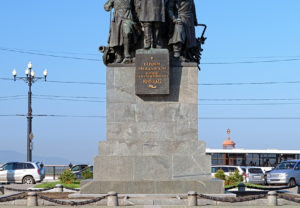Salah Abdeslam, 26, a French national originally from Morocco who authorities allege helped plan and carry out the terrible attacks on Paris in 2015 that killed 130 innocent people, is still alive.
On Wednesday he was transferred from Belgium custody (he was captured on March 18 in the Molenbeek section of Brussels) to the French where he’ll sit in solitary confinement while he awaits charges against him.
He’s not speaking, but his lawyer is! And he, Belgian attorney Sven Mary, does not waffle.
He shoots from the lip.
And he HATES his new client.
And that might be an understatement.
Recently, Mary was published in the French paper Liberation personally assassinating his suspected terror client, saying that he had “the intelligence of an empty ashtray — abysmal emptiness” and that he hadn’t even read the Koran, just perused the “CliffNote” equivalent online.
The Belgian legal aigle also straight up called him a “petit con”, which translates to “little jerk” or “asshole”.
“[Abdeslam] is the perfect example of the GTA generation who thinks he lives in a video game,” he said.
“GTA” is a reference to the popular game “Grand Theft Auto”, which sold millions of copies for the user’s ability to roam virtual city streets and steal things, kill people and cause havoc in a dark, twisted fantasyland.
This from the Washington Post:
This characterization of the terrorist suspect sketched by his attorney fits in with preexisting analysis by European counterterrorism officials, who see the current wave of violent extremists emerging not from a position of ideological fervor, but criminality and antisocial behavior.
A report by a Brussels think tank cited by WorldViews in March observed how Abdeslam and his peers’ “acquaintance with religious thought is undoubtedly more shallow and superficial than their predecessors’, as is their acquaintance with international politics.” It added: “Injustice was often a starting point with their predecessors’ journey towards extremism and terrorism. This has now largely been overshadowed by personal estrangement and motives as the primary engines of their journey.”
The study noted the distinction between an earlier generation of “radical Islamists” and the current crop of “Islamized radicals.”
“Their revolt from society manifested itself through petty crime and delinquency,” Belgian counterterrorism official Alain Grignard wrote in an essay cited by The Washington Post’s Greg Miller and Joby Warrick. “Many are essentially part of street gangs. What the Islamic State brought in its wake was a new strain of Islam which legitimized their radical approach.”
Seems like, in Abdeslam and his associates’ case anyway, religion was more or less a patsy for the horror, rather than the root cause. Through Islamic extremism, a smalltime street parasite could elevate his chaos and project it from an alley to a worldwide stage.
Still a parasite though.




































